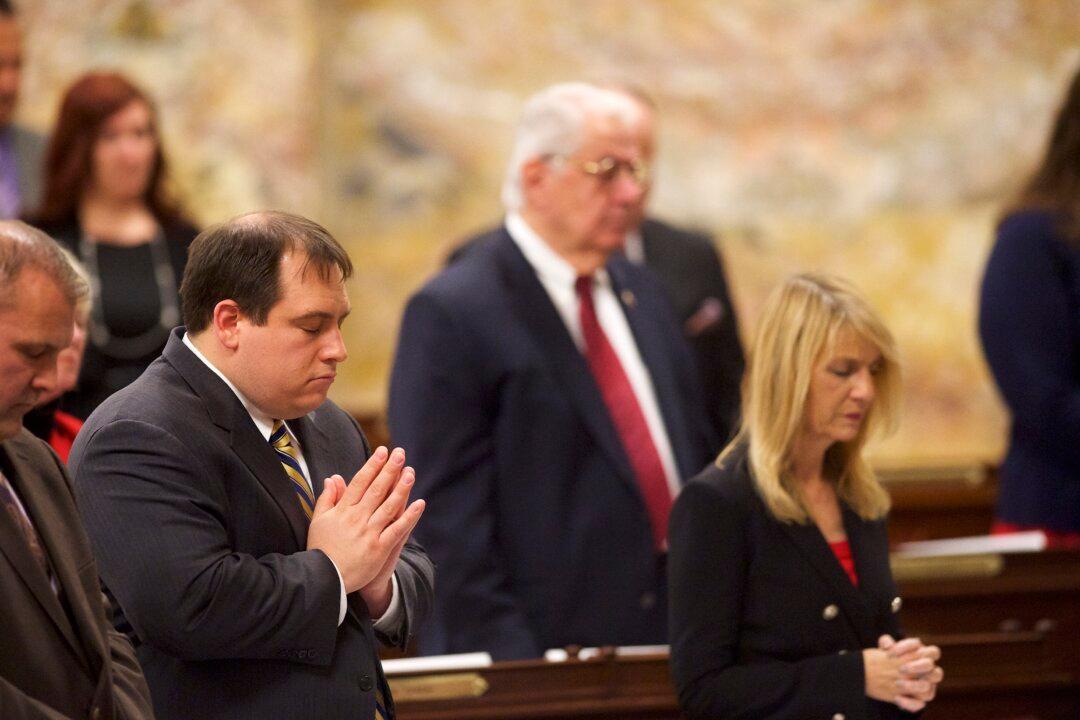The ban on nonbelievers giving the opening prayer at sessions of the Pennsylvania House of Representatives does not violate the U.S. Constitution, a federal appeals court has ruled, declaring that “prayer presumes a higher power.”
The 2-1 ruling on Aug. 23 by the 3rd U.S. Circuit Court of Appeals upholds the policy of limiting prayers at the start of legislative sessions to guest chaplains who believe in God, in the divine, or a higher power, and to members of the House.





